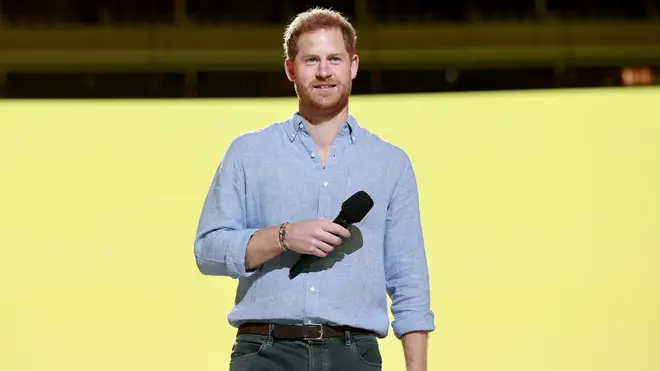
Ali Miraj 6pm - 9pm
17 May 2021, 08:56

Prince Harry is facing criticism in the US after describing the First Amendment as "bonkers" in an appearance on a podcast.
Appearing on Dax Shepard's podcast last week, Harry appeared to criticise the First Amendment which protects basic freedoms for citizens, including freedom of religion, freedom of speech, freedom of the press, the right to assemble, and the right to petition the government.
Harry said in the podcast: "I've got so much I want to say about the First Amendment as I sort of understand it, but it is bonkers," he said.
"I don't want to start going down the First Amendment route because that's a huge subject and one which I don't understand because I've only been here a short time.
READ MORE: Prince Harry says being a Royal was like 'being in a zoo'
"But, you can find a loophole in anything.
"You can capitalise or exploit what's not said rather than uphold what is said."
His comments sparked an angry backlash in the US.
Texas Congressman Dan Crenshaw wrote on Twitter: "Well I just doubled the size of my Independence Day party."
Another person posted online: "Imagine being completely mystified by the idea that people have a right to speak their minds without fear of being arrested."
Prince Harry is attacking America's First Amendment
— Jack Posobiec (@JackPosobiec) May 15, 2021
Tells you everything you need to know
Harry also told the Armchair Expert podcast he doesn't want to bring up his children "the way he was raised."
The Duke of Sussex told the Armchair Expert podcast about "breaking the cycle of pain and suffering." He also compared his upbringing to the Truman show.
He said: "There is no blame. I don't think we should be pointing the finger or blaming anybody, but certainly when it comes to parenting, if I've experienced some form of pain or suffering because of the pain or suffering that perhaps my father or my parents had suffered, I'm going to make sure I break that cycle so that I don't pass it on, basically.
"It's a lot of genetic pain and suffering that gets passed on anyway so we as parents should be doing the most we can to try and say 'you know what, that happened to me, I'm going to make sure that doesn't happen to you'."
Clarence House hasn't commented on the podcast.